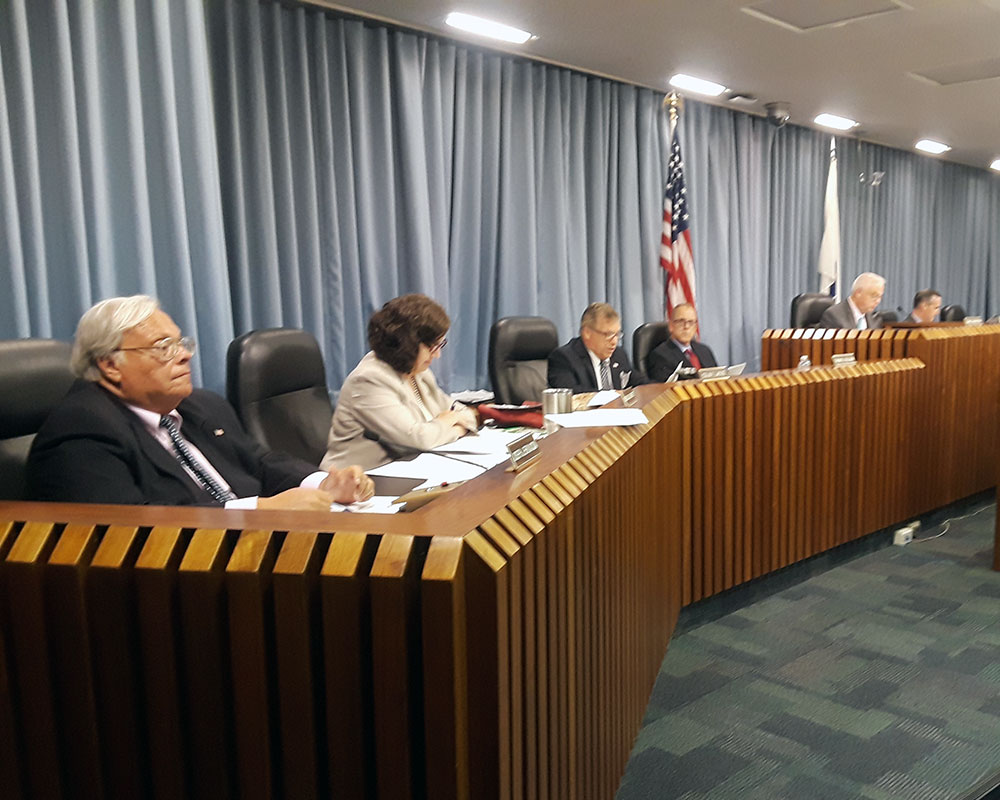A pledge to hire a maintenance director, along with the hope of sharing the cost of a heating and cooling professional with the schools, were enough to convince a majority of city councilors Tuesday night to approve Haverhill’s $201 million spending plan.
The new budget goes into effect next week. Council President John A. Michitson and Councilor Timothy J. Jordan voted no, holding out for a better building maintenance plan. Citing the city’s 1.6 million square feet of school buildings, Jordan said, the new plan still doesn’t lift the schools from the lowest maintenance rating.
“It’s just not enough for me because I would like to see us shoot for being above ‘unkempt neglect,” he said.
The mayor said he was convinced to add the new jobs after meeting with Councilors Colin F. LePage and Joseph J. Bevilacqua. Fiorentini added, other councilors are mistaken if they believe another $250,000 for maintenance will solve problems.
“That doesn’t include the cost of the tools and machinery that they’ll need. It doesn’t include the overtime. It doesn’t include the cost of supervising them. It doesn’t include their healthcare, their pension, their sick leave or their unemployment benefits. It doesn’t include their retirement benefits and it doesn’t include their healthcare benefits upon retirement,” the mayor said.
Instead, Fiorentini said, outsourcing large roofing, plumbing, electrical and other specialties still get the job done, but at greatly reduced costs. He, Councilor Mary Ellen Daly O’Brien and Vice President Thomas J. Sullivan said the schools haven’t asked for the help. Sullivan explained, “It’s more than just throwing some money at the School Department, hoping they use it in the intended fashion.”
The lack of a maintenance director is what has “been missing,” said Councilor William J. Macek in support of the new post. Councilors Melinda E. Barrett and Michael S. McGonagle agreed.
LePage schooled his colleagues and the public on the history of public buildings. Nearly 20 years ago, he said, the city had a Public Property Department with a staff of 14 people and a budget of more than $1 million. That was before the former city-owned Hale Hospital sunk city’s finances, forcing a third of the workforce to be laid off and leaving only $200,000 for repairs. With the money situation now greatly improved, he advocated for restoration of the Property Department.
Michitson held his ground, saying deferred maintenance inevitably leads to higher debt because of the need to replace schools. Further, he added, the budget does not address the increasing number of “economically disadvantaged” families and high-need students. He argued the city would have had the money if it had used extra state aid over the years to pay off hospital debts. Instead, that money was used to reduce property taxes.
Mechanically, adding the maintenance director and city share of a heating and cooling professional required taking $90,000 from the city’s snow removal budget. Another $60,000 previously cut from the mayor’s tree-planting budget was given to the school department in hopes the School Committee would use it for the other half of the HVAC job.

